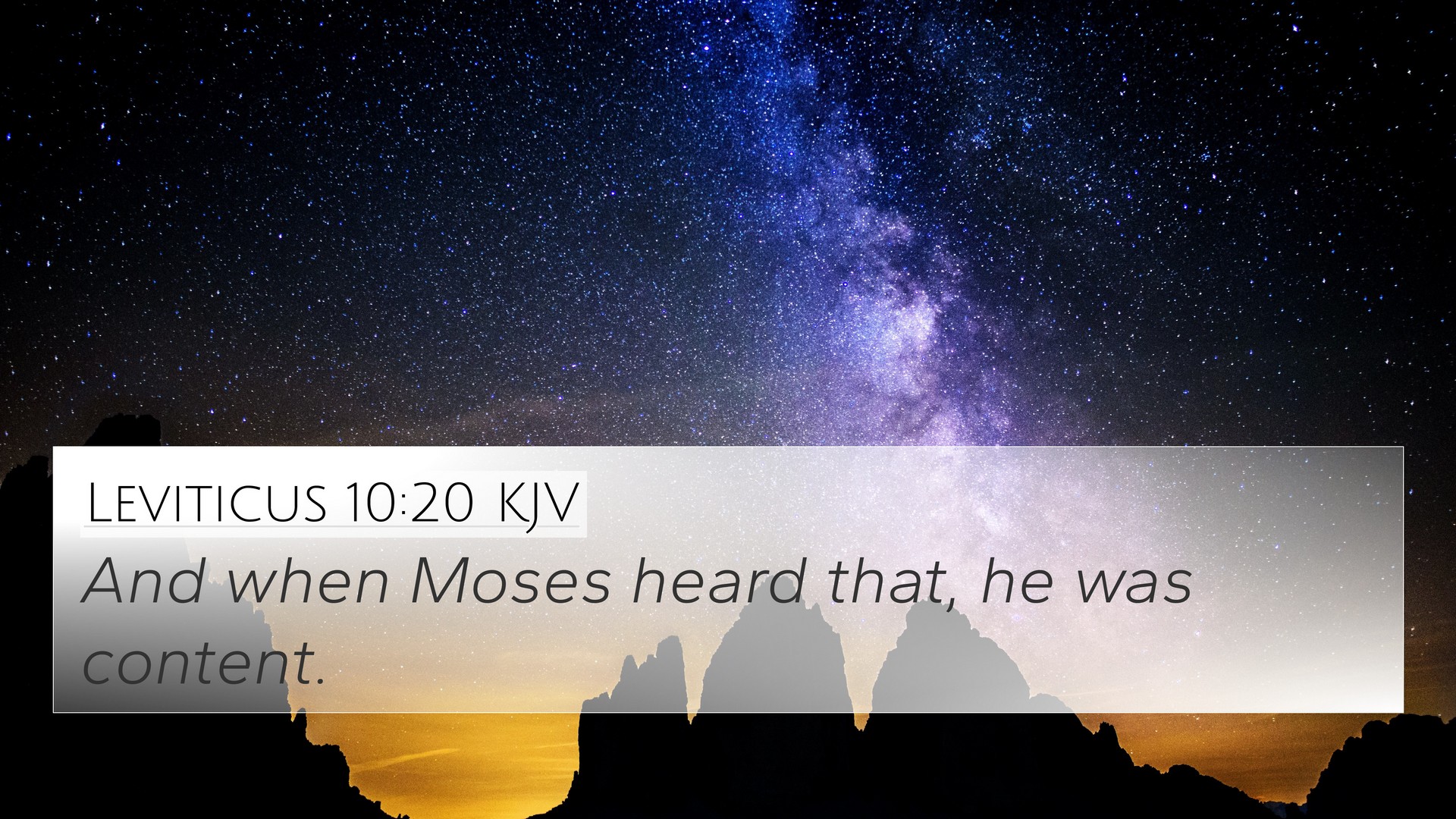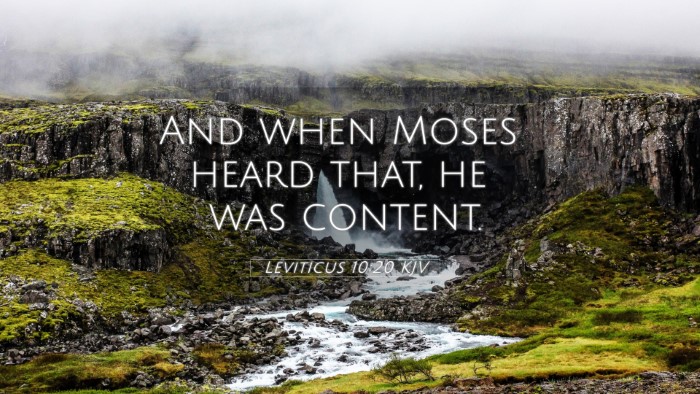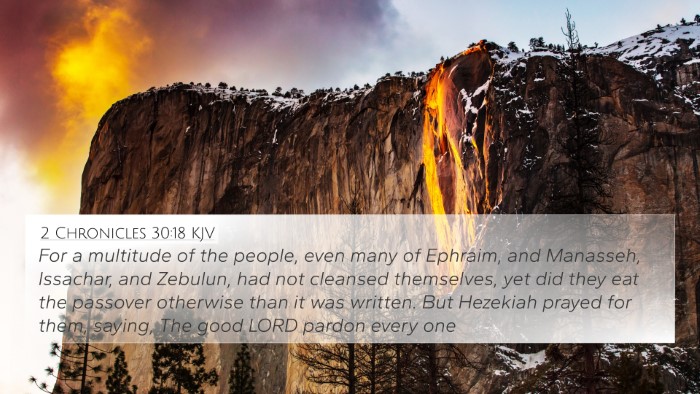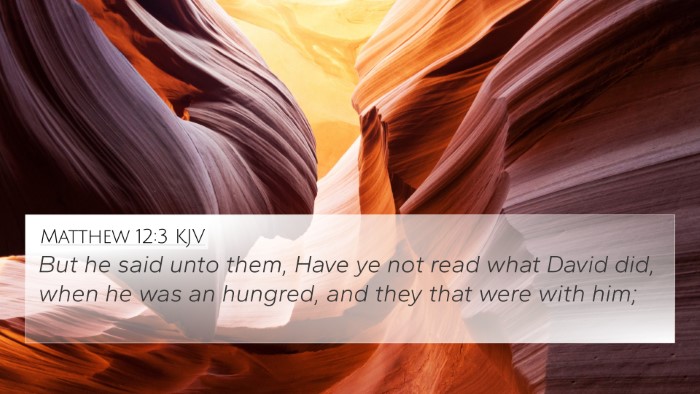Understanding Leviticus 10:20
Verse: "And Aaron heard it, and he held his peace." - Leviticus 10:20
Verse Meaning Overview
This verse captures a crucial moment in the narrative surrounding Aaron, the high priest, following a severe event involving his sons Nadab and Abihu. Their unauthorized offering to God led to their immediate punishment, which profoundly impacted Aaron, the father. This moment underscores the themes of obedience, reverence, and divine judgment.
Contextual Background
The incident preceding this verse sets a tone of solemnity and fear among the people of Israel. God had clearly established guidelines for worship, and any deviations—especially by those in leadership—came with immense consequences. The death of Aaron's sons serves as a cautionary tale about the seriousness of approaching God improperly.
Commentary Insights
Matthew Henry's Commentary
Henry reflects on Aaron's silence, interpreting it as a profound act of submission to God's will. Instead of reacting with anger or denial, Aaron accepts the divine judgment, illustrating the importance of acknowledging God’s sovereignty even amidst personal grief and tragedy.
Albert Barnes' Commentary
Barnes emphasizes Aaron's character, noting that his silence symbolizes deep contemplation of the situation's gravity. It portrays Aaron as a man of integrity, who recognizes his role and the holiness of God, echoing the call for reverence and faithfulness in worship practices.
Adam Clarke's Commentary
Clarke elaborates on the implications of Aaron's reaction, suggesting that his peace reflects an understanding of God’s larger plan. Aaron's acceptance serves as a reminder for the faithful to trust in God's overarching purposes, even when faced with sorrow or bewildering circumstances.
Thematic Bible Verse Connections
This verse provides fertile ground for thematic Bible verse connections, encouraging the reader to explore related scriptures concerning divine judgment, the holiness of God, and the response of leaders in critical situations. Here are relevant cross-references:
- Exodus 30:10 - Discusses the role of the high priest in atonement.
- Leviticus 16:1-2 - Highlights God's severe warnings regarding His presence.
- Hebrews 12:28-29 - Discusses the reverence required towards God, linking New Testament themes with Old Testament practices.
- Números 3:4 - Relates to the dire consequences of unfaithfulness in the priestly role.
- 1 Chronicles 24:1-3 - Explores the duties of the priests concerning their responsibilities and roles.
- Proverbs 15:33 - Reflects on the fear of the Lord as foundational to wisdom.
- Romans 12:1 - Calls for living sacrifices, which can be contrasted with Aaron's sons' offering.
Cross-Referencing Biblical Texts
The act of cross-referencing enhances understanding and can deepen insights into scriptures regarding divine accountability. This can be done through various tools for Bible cross-referencing such as a Bible concordance or cross-reference guide. Here’s how you can explore these tools:
- Identify connections between Old and New Testament - For example, compare Aaron's response with how Jesus addressed authority and obedience in Matthew 26:39.
- Utilize Bible study methods - Compare the responses of different Biblical leaders to God's commands in various contexts.
- Explore thematic connections - Encourage deeper study on the themes of judgment and leadership responsibility through scriptures like Galatians 6:7.
Conclusion
In summary, Leviticus 10:20 represents a pivotal moment in the scriptural narrative that invites readers to delve deeper into the themes of divine holiness and human reverence. The teachings of commentators like Matthew Henry, Albert Barnes, and Adam Clarke emphasize the importance of maintaining a respectful relationship with God, particularly in leadership roles. By engaging with the cross-references provided, readers can further enrich their understanding of how this verse interacts with other significant Biblical texts, enhancing their Bible study experience.






